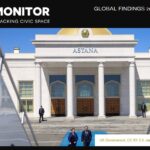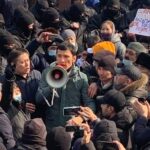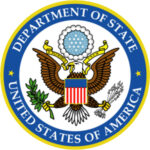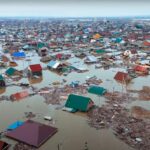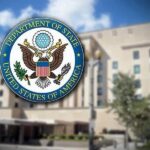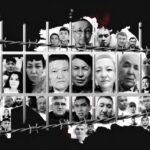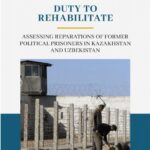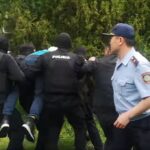HUMAN RIGHTS WATCH
Changes Needed for Upcoming OSCE Leadership Role
May 20, 2009
(New York) – The Kazakh government should use the remaining seven months before it takes on the chairmanship of the Organization for Security and Co-operation in Europe (OSCE) to bring its human rights record in line with the responsibilities this prominent role entails, Human Rights Watch said in a report released today.
The 16-page report, “Human Rights in Kazakhstan: Seven Months before the OSCE Chairmanship,” updates a December 2008 Human Rights Watch report on freedom of religion, expression and assembly in Kazakhstan. Ensuring that participating states respect human rights is a core function of the OSCE.
“Kazakhstan has made a number of modest improvements in the past several months,” said Holly Cartner, Europe and Central Asia director at Human Rights Watch. “But it should be doing a lot more to show that it is ready to lead an organization that works to make sure human rights are respected.”
In 2007, the OSCE agreed to give Kazakhstan the chairmanship in 2010, which will make it the first country of the Commonwealth of Independent States to lead the organization. When the OSCE made the decision, the Kazakh government pledged, among other things, to reform a number of restrictive laws pertaining to elections and the media.
In a positive move, in February 2009, Kazakhstan’s Constitutional Council ruled that a proposed, restrictive religion law was unconstitutional. The council found that the law did “not ensure equality between religious communities” – specifically “religions previously not known in the Republic of Kazakhstan” – and that many provisions were vague. But concern remains that the government might again try to adopt a restrictive religion law as soon as the OSCE chairmanship has ended.
Amendments to an existing media law make such minor adjustments as freeing television and radio stations, which must obtain broadcast licenses, from the additional requirement of registering with the authorities. Human Rights Watch said the amendments, signed by President Nursultan Nazarbaev in February, do not address broader problems with media freedoms in Kazakhstan, such as the domination by government loyalists of broadcast media outlets, harassment of independent journalists, and the existence of criminal penalties for libel.
Moreover, on January 5, the Agency for Information and Networks, a government regulatory agency, submitted several new laws to parliament that would restrict freedom of expression on the internet and introduce restrictions on other mass media. Human Rights Watch said the overall effect of the proposed amendments would be to nullify the very modest improvements brought about by the changes Nazarbaev approved.
“Journalists in Kazakhstan work in an environment of anxiety and face the constant threat of lawsuits and, not infrequently, direct threats to their person,” said Cartner. “These are the issues the government needs to address.”
The government has made no effort to liberalize legislation on public assemblies, which remain tightly controlled in Kazakhstan. Any politically motivated public meeting that is not organized directly or indirectly by the government, or that is not in support of government policies, is likely to be denied a permit or broken up by police, or both. Kazakhstan’s law on public assemblies requires demonstrations as small as a one-person picket to be registered with the relevant municipality mayor’s office 10 days in advance, and requires detailed information about the demonstration, its goals, participants, and the like.
In February, the authorities banned protests by several citizens’ groups and political parties all over Kazakhstan, contending that it was because other events were scheduled for exactly the same day and time. In another example, on April 21, 12 activists with the youth human rights organization Ar.Rukh.Khak were detained by police for three hours when they tried to meet with journalists on the main square in Almaty. They had organized the gathering to express their concerns about draft amendments to a law that would require students to undergo mandatory drug testing. The group had not registered the meeting with the authorities.
“Often, Kazakhstan’s human rights problems aren’t front-page news,” Cartner said. “So it is even more important that OSCE-participating states closely look at the group’s future chair and ensure that Kazakhstan will be able to promote the organization’s principles credibly.”
Human Rights Watch called on the government of Kazakhstan to follow up on initial reforms by:
-
Issuing an invitation to the United Nations Special Rapporteur on freedom of religion or belief immediately to visit and review human rights conditions;
-
Placing a moratorium on criminal libel cases, taking all necessary steps to abolishthe relevant articles in the Criminal Code relating to criminal libel, and establishing a cap on defamation awards;
-
Stopping any attempt to filter internet content or block access to websites, and refraining from adding further unwarranted restrictions to the mass media law; and
-
Abolishing unnecessary restrictions on locations where demonstrations can take place.
http://www.hrw.org/en/news/2009/05/19/kazakhstan-improve-human-rights-record


